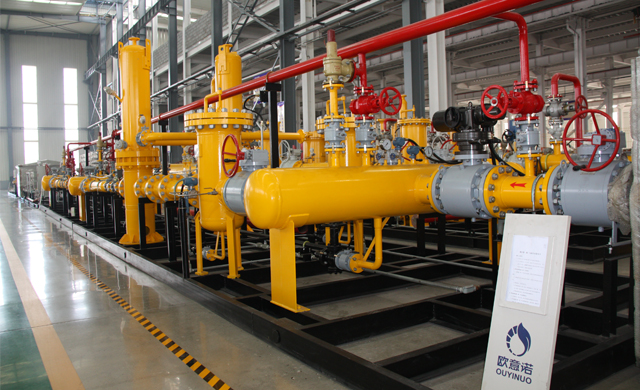
Dec . 09, 2024 22:25
Back to list
Understanding the Functionality and Applications of Gasifier Technology in Energy Production
The Future of Energy Exploring Gasifier Technology
In the quest for sustainable energy solutions, gasification has emerged as a transformative technology that holds tremendous potential for converting various feedstocks into cleaner and more efficient energy sources. Gasifiers play a crucial role in this process, serving as advanced reactors that convert solid or liquid carbonaceous materials into synthesis gas, or syngas, which can be used to produce electricity, hydrogen, or fuels. This article delves into the principles of gasification, its applications, and its role in the transition towards a more sustainable energy future.
Gasification operates on the principle of thermal decomposition, wherein organic materials, such as biomass, coal, or waste, are subjected to high temperatures in a limited oxygen environment. This process allows for the breakdown of complex organic molecules into simpler gaseous compounds, primarily carbon monoxide (CO), hydrogen (H2), and carbon dioxide (CO2). The resulting syngas can then be utilized in various ways, making gasifiers an integral part of the energy production landscape.
One of the most significant advantages of gasification is its ability to utilize a diverse range of feedstocks. Biomass, in particular, is a renewable resource that can be sourced from agricultural residues, forestry waste, and even municipal solid waste. By converting these materials into syngas, gasifiers contribute to waste reduction while providing a sustainable energy source. Moreover, when biomass gasification is employed, the process can be carbon-neutral, as the CO2 emitted during energy production is offset by the CO2 absorbed during the growth of the biomass.
Gasification also presents an avenue for enhancing energy efficiency
. Compared to conventional combustion methods, gasification allows for a more controlled and efficient conversion of fuel into energy. The syngas produced can be utilized in combined heat and power (CHP) systems, which simultaneously generate electricity and useful heat, thereby maximizing the efficiency of the energy conversion process. This versatility showcases the adaptability of gasifiers in meeting both energy and heat needs in various applications, from industrial processes to residential energy systems.gasifier

Furthermore, gasification can play a pivotal role in the production of hydrogen, a clean fuel that is gaining traction as an alternative to fossil fuels. Hydrogen obtained from syngas can be utilized in fuel cells for transportation or as a feedstock for various industrial processes. As the global economy intensifies its efforts to reduce carbon emissions, hydrogen produced through gasification can serve as a crucial component in the transition to a hydrogen-based economy.
Despite its many advantages, the commercialization of gasification technology has faced challenges. High capital costs, technological complexities, and the need for efficient feedstock handling systems have impeded widespread adoption. However, ongoing research and development efforts are addressing these challenges, leading to improved gasifier designs and more efficient processes. Pilot projects and commercial plants are being established worldwide to demonstrate the viability of gasification as a scalable solution for energy production.
While advancements in gasifier technology are promising, widespread adoption will require regulatory support, investments in infrastructure, and public awareness. Policymakers must create favorable frameworks that incentivize the development and deployment of gasification systems, particularly in regions rich in biomass resources or waste materials. Educating the public about the environmental benefits and economic potential of gasification will also be essential in garnering support for this transformative technology.
In conclusion, gasification stands at the forefront of innovative energy solutions, offering a pathway to sustainable energy production. By converting waste and renewable feedstocks into valuable syngas, gasifiers can play a crucial role in reducing reliance on fossil fuels while addressing environmental concerns. As technology continues to advance and overcome existing barriers, gasification has the potential to significantly contribute to a cleaner, more sustainable energy future. The transition towards this future will depend on collaboration among governments, industries, and communities to harness the full potential of gasification technology.
Latest news
-
Safety Valve Spring-Loaded Design Overpressure ProtectionNewsJul.25,2025
-
Precision Voltage Regulator AC5 Accuracy Grade PerformanceNewsJul.25,2025
-
Natural Gas Pressure Regulating Skid Industrial Pipeline ApplicationsNewsJul.25,2025
-
Natural Gas Filter Stainless Steel Mesh Element DesignNewsJul.25,2025
-
Gas Pressure Regulator Valve Direct-Acting Spring-Loaded DesignNewsJul.25,2025
-
Decompression Equipment Multi-Stage Heat Exchange System DesignNewsJul.25,2025

